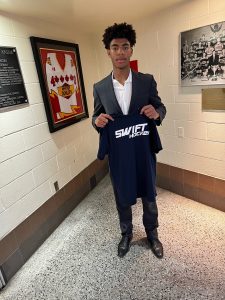Professors – Alternative Assessment of Student Learning – Promoting Learning
These sentiments are still being expressed on campuses across the country, but there is a growing perspective that addresses many of these concerns: the alternative assessment movement. This movement is not limited to higher education by any means; many K-12 educators are exploring alternative ways to determine what students have learned.
Written exams (of the traditional type) can be poorly designed or well designed. This article is not going to focus on how to write good test items; there are other resources for that. Recognize that although both selected response and essay tests are valuable tools for any professor, the reality is that much of what we should do in our courses is not an effective match to these forms of assessment. This is especially true in advanced courses within our curricula, designed to address the higher levels of Bloom’s taxonomy. Since the quality movement began to affect the business community significantly in the late 1980s, an increasing number of leaders in higher education have come to view traditional testing as disconnected from the ultimate goal of education, that is, to prepare students for real life. In real life, they say, graduates are seldom expected to take paper- and-pencil tests, and are instead expected to identify real problems and orchestrate multi-dimensional projects designed to solve those problems nearly every day of their lives.
Higher education, consequently, has experienced a mushrooming interest in developing more genuine and effective ways of assessing student UK University admission support learning. Advocates of alternative assessment, sometimes called “authentic” or “genuine” assessment, believe that we should focus on student learning rather than on teaching. Consider the paradigm of constructivist learning: rather than passively receiving knowledge from their professors, students make sense of new material by linking it with knowledge they already possess. Said another way, students “construct” new knowledge on their existing foundations. Advocates of alternative assessment speak of introductory courses developing a “scaffold” upon which more advanced learning is built; they also speak of the need to link courses so that students avoid both gaps and excessive overlaps in their knowledge structure. All students, they say, should be encouraged to demonstrate their learning frequently, through a variety of authentic means in either real or realistic (simulated) settings. Alternative assessment attempts to place learning within a systems context, in which courses in a curriculum dovetail smoothly with each other – a perspective that students often see (and appreciate) more readily than do professors invested in developing and refining a single course or two.
So, think about why it’s worth investing the extra effort that is required of authentic assessment. Think about what kinds of learning lend themselves to being assessed in alternative formats. And, now, think about why YOU know you want to explore these ideas further. There are a multitude of resources available – on your campus and around the world. Start seeking them out today.






